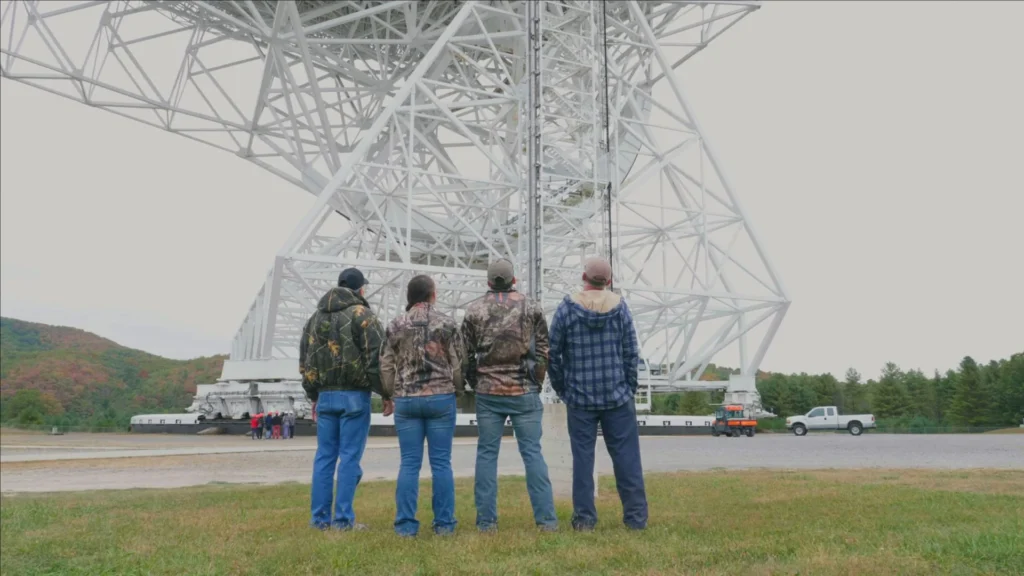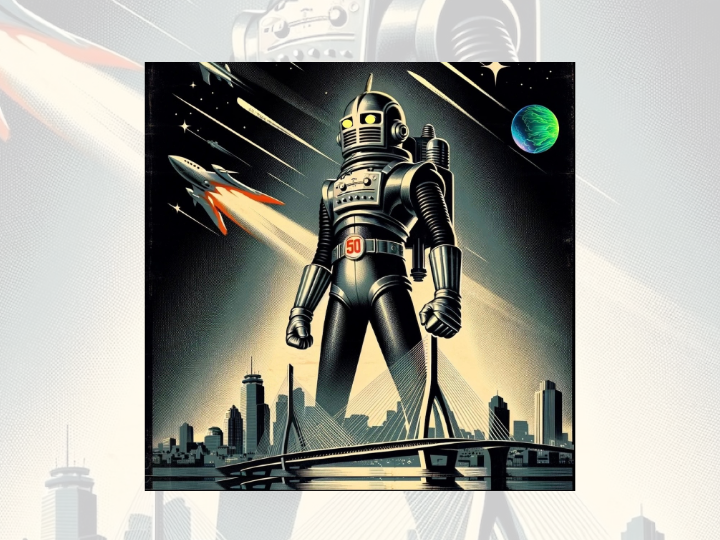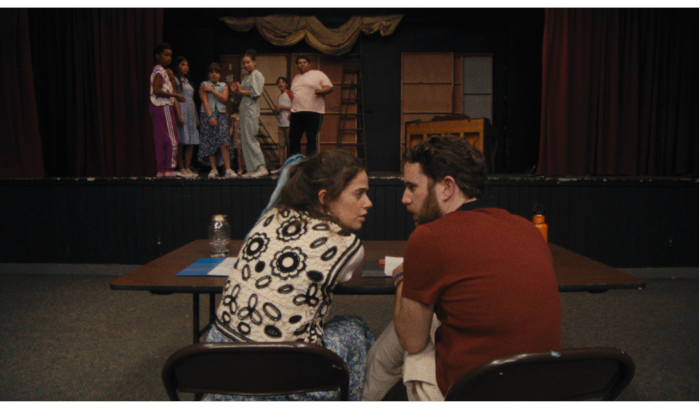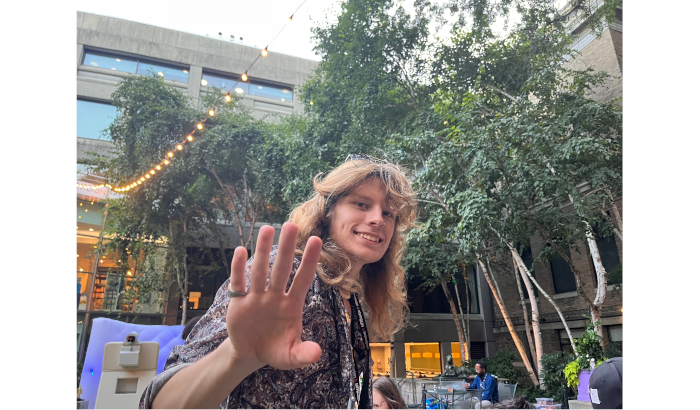Our interview with director Katie Dellamaggiore, whose “Small Town Universe” will play at the festival
Although the Boston Sci-Fi Film Festival turns an impressive 50 this year, its roots stretch back even further—to science fiction fan gatherings in the 1940s, when a group of locals called the Stranger Club created Boskone, the area’s largest sci-fi convention. When the New England Science Fiction Association took over production of the festival in 1976, organizers launched the Boston Sci-Fi Film Fest to boost visibility and complement the larger con.
The first year of the festival featured showings of films like “This Island Earth,” “The War of the Worlds,” “Them!,” and “Zardoz” at the Orson Welles Cinema in Cambridge. Famously, attendees the following year were given a sneak peak at an early preview for Star Wars and sent home with a collectible poster. When the Welles Theater burned down in 1987, the festival was shuffled between the Somerville Theatre in Davis Square, the Coolidge Corner Theatre in Brookline, Dedham Community Theater and the West Newton Cinema. The majority of its last 20 years has been spent in Somerville.
Known for its unique panels and premiers of noteworthy sci-fi films and shorts, the event has also lured creatives who compete for “best in show,” an award called the Gort, aptly named after the robot from “The Day the Earth Stood Still.” This year’s festival runs from Feb. 12 through the 17th at the Somerville Theatre, with the closing weekend featuring a showing of “It Came from the Orson Welles,” a doc which looks at the fest itself, plus a 24-hour marathon of favorite sci-fi features, contests, and more.
The 2025 sci-fi features
This year’s 10 feature films include three US premieres: “The Road to Nowhere” by Polish director Amadeusz Kocan, “Parallel Consequences” by Brazilian director Gabriel França, and “Is / Was \ Will,” which was created entirely with stock footage by Hollywood veteran Richard Shepard (“The Linguini Incident,” Hulu’s “The Handmaid’s Tale”). The latter film includes star power in Kumail Nanjiani, Carrie Coon, Sam Rockwell, and Murray Bartlett, who provide voicework for the film in which “a surveillance professional risks imprisonment or worse to pursue love amid a society that spends its off time forgetting with a state-sanctioned drug.”
According to organizers, several films chosen from more than 300 submissions tap into the biggest tech story of the century, the rise of AI, including “I Hope This Helps!,” a documentary in which writer-director Daniel Freed tries to train AI to help him destroy AI, and “I’m Not a Robot,” which focuses on Victoria Warmerdam questioning her humanity following a series of failed CAPTCHA tests.
A universe with no cell phones
This year’s opening night feature, “Small Town Universe,” directed by Katie Dellamaggiore, has racked up several awards including Global Health Competition Winner at the Cleveland International Film Festival, Audience Award Winner at the Brooklyn Film Festival, and the Industry Award for Breakthrough in SciComm at the Raw Science Film Festival since its initial release last April. Dellamaggiore told HorizonMass that in creating the film, she was initially inspired to investigate Green Bank, West Virginia, after googling, “Is there a town without cell phones?” in 2015.
Like Dellamaggiore’s first film, 2012’s “Brooklyn Castle,” “Small Town Universe” is a character-driven documentary about the members of a tiny Appalachian town that aren’t connected in most modern ways, but still share a bond in the pursuit of scientific knowledge. Over a period of several years, Dellamaggiore dove deeper into the town’s unique, unplugged lifestyle which contrasted with the neighboring Green Bank Telescope, a machine tasked with answering the big questions like, Where did the universe begin? And, Is there intelligent life beyond Earth?

A cell phone emits about three watts and can swamp the sounds that astronomers are searching for, so cell phone use is extremely limited in this National Radio Quiet Zone, which includes 13,000-square miles from the western half of West Virginia and Virginia, stretching to the Maryland border. Visitors will note that the quiet zone gets drastically more restrictive the closer you get to Green Bank, where the National Radio Astronomy Observatory operates the Robert C. Byrd Green Bank Telescope.
In 2015, the area was starting to garner a lot of media attention due to pending budget cuts. Dellamaggiore said on her first trip to Virginia for the project, she realized that the story was much bigger than just about whether or not there were cell phones.
“I became much more interested in the science that was happening at the observatory, especially as someone who knew nothing about that science at all,” she said in an interview. “I don’t make science films, I’m not a Trekkie and I’m not even into science fiction, but the fact that all of that was happening in this super rural environment where it was really quiet just felt like a really special story to tell.”
Since the film premiered last year in Cleveland, Dellamaggiore said she has brought “Small Town Universe” to a dozen or so film festivals. The Boston Sci-Fi Film Fest, she said, marks her first appearance at a science fiction-themed festival. Although the film uses sci-fi (finding extraterrestrial life) as a backdrop, the director said it has multiple layers and works best as a fresh look into the way humans can unite around technology.
“These bigger questions are something that hopefully can bring us together instead of dividing us,” she said. “I think it brings up a lot of feelings just about taking science beyond something that’s political, like red or blue. Science is for everybody and it’s even happening in places you don’t expect like this small rural Appalachian town.”
Dellamaggiore is scheduled to speak at Boston Sci-Fi Film Festival’s opening night on Feb. 12 at Wednesday, Feb. 12 at 8 pm.






